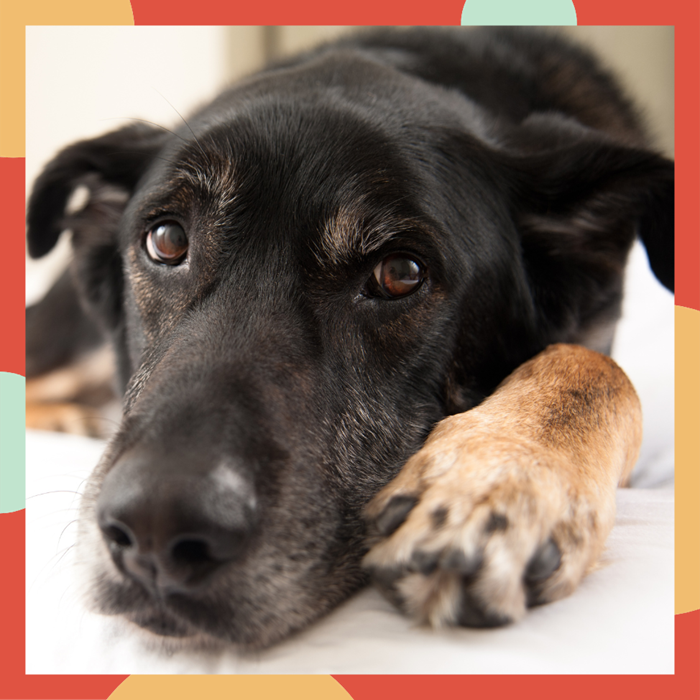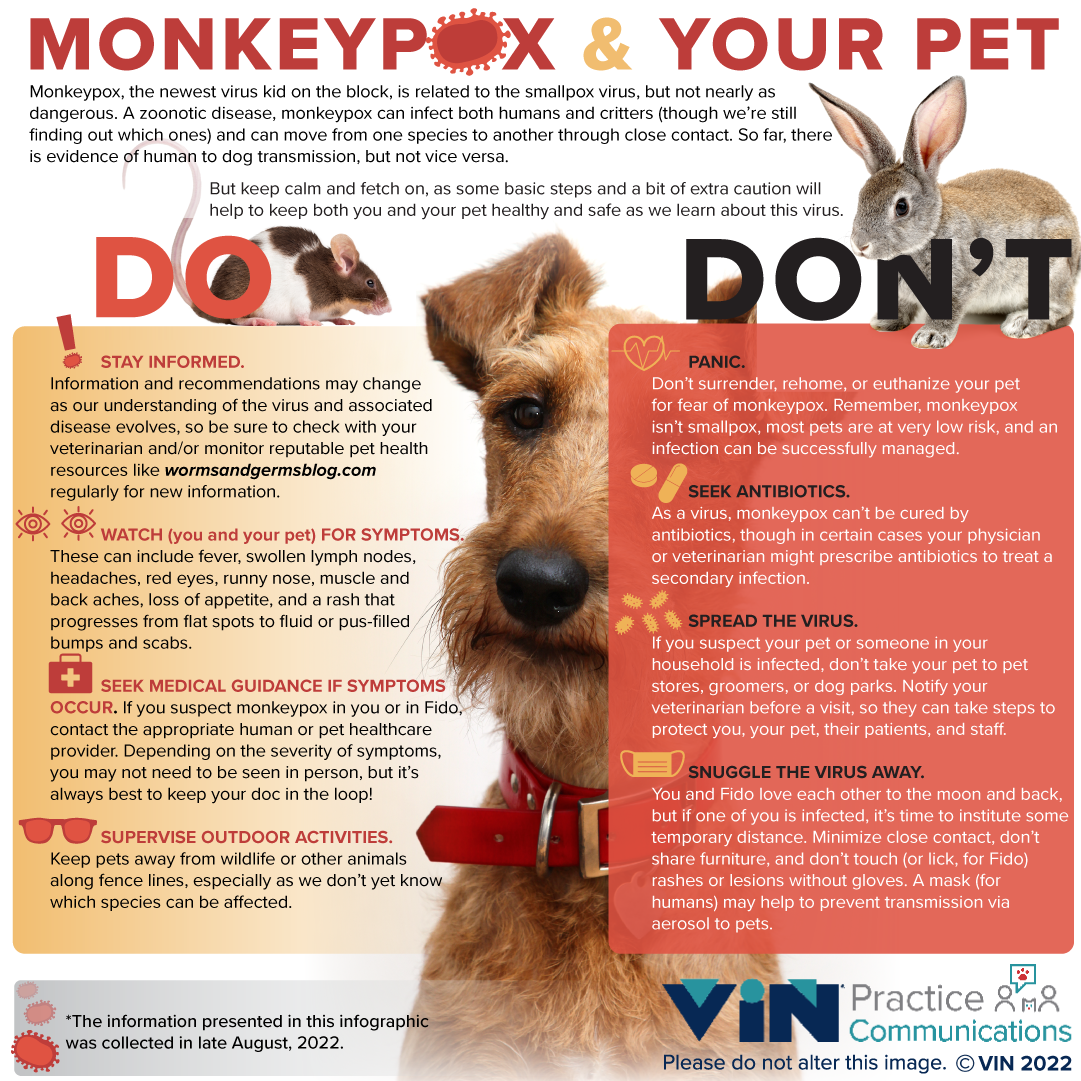Dear VIN Practice Communications friends,
A pox on these viruses! It seems like we barely figure out one new virus these days before another hits the news. You’ve almost certainly heard of the monkeypox virus by now, and if you’re anything like us, you have questions about your own health and that of your pets.
While we’re still learning more about this virus and how it moves between different species of animals, here are some answers on how to keep your pets and your family healthy. |
 |
| |
What is monkeypox?
Monkeypox is a disease caused by a virus related to the smallpox virus. However, it causes less severe illness and is far less likely to cause death than smallpox. Monkeypox is also what's known as a zoonotic disease. This means it can infect both humans and non-human animals and can move from one species to another. |
 |
| |
 |
Can my pet get monkeypox?
We still don’t know all the species monkeypox can infect. Right now, humans, non-human primates (monkeys, chimps, etc.), and certain rodents seem to be the most vulnerable. We do know that it can infect rabbits, mice, and dogs. The jury is still out on cats. It is a disease of mammals, so it’s unlikely to infect your birds, reptiles, amphibians, or fish. |
 |
Let's talk symptoms.
In people, we know that monkeypox can cause the following symptoms: fever, swollen lymph nodes (“glands”), headaches, red eyes, runny nose, muscle and back aches, loss of appetite, and a rash that follows these steps:
- Macules (skin patches altered in color)
- Papules (small bumps)
- Vesicles (fluid-filled blisters)
- Pustules (pus-filled bumps)
- Scabs
Rashes are pretty common and can have a variety of causes even less concerning than monkeypox, so please contact us for guidance if you notice one on your pet.
|
 |
How is monkeypox spread?
For the most part, monkeypox appears to be spread through close contact such as direct contact with skin lesions, respiratory droplets (coughs, sneezes, kisses, licks, close breathing), contact with contaminated surfaces that then enters the body through the eyes, mouth, or broken skin. |
 |
It's important to note that so far*, there is evidence of human to dog transmission, but not vice versa. |
 |
What do I do if I suspect I have/my pet has monkeypox?
If any of the humans or pets in your home show the above symptoms or have been in close contact with another person or animal infected with monkeypox, contact us and/or your physician right away. Testing methods are being developed, but are generally available through your human healthcare provider and results may take several days. |
 |
Reducing the spread at home.
If you or your pet are showing signs of a monkeypox infection, take steps to reduce the chances of spreading the virus. Minimize close contact between infected pets and humans, between infected and healthy pets, between infected and healthy humans, and between infected humans and healthy pets.
Basically, if any member – two-legged or four-legged— of your family has monkeypox signs, minimize contact between them and the healthy members of the home. The infographic below has some more helpful tips.
|
 |

| |
 |
Remember, monkeypox isn’t smallpox, most pets are at very low risk of infection, and an infection can be successfully managed.
For additional information on monkeypox and pets, we recommend these resources:
Worms and Germs Blog: What To Do With Monkeypox-Exposed Pets?
CDC: Monkeypox in Animals
*Please note: Information and recommendations may change as our understanding of the virus and associated disease evolves, so be sure to check with us and/or monitor the shared sources above regularly for new information.
Most importantly and as always, if you think your pet isn't well, please don't hesitate to contact us. We're here for you!
Sincerely,
Your friends at VIN Practice Communications
|
|










